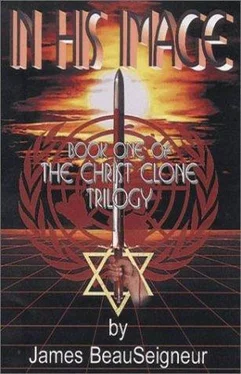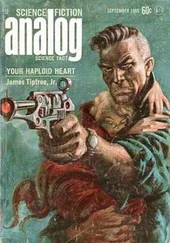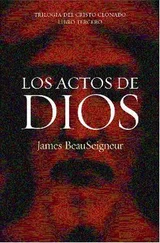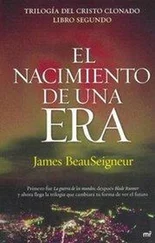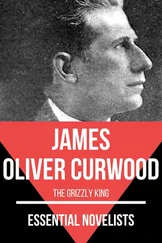"What's going on?" asked Tom. "Why so many?"
"Don't know," answered Asher. "So far the riots have been scattered and limited to a few dozen Palestinians at any one time. This is very unusual."
When they arrived near the site of the riot, the road had been roped off by Israeli security forces. Asher pulled the car to the checkpost and showed the soldier his press credentials. A moment later they parked the car within a hundred yards of the riot and Asher and Dean put large "PRESS" signs in their front, side and rear windows. "Most of the time they won't bother press vehicles," Dean explained as Tom and Decker looked on.
As they approached the rioting, the size of the crowds became clear. Asher's source had been right about the number. The Israeli security forces had broken the Palestinians into six or eight smaller groups. From the direction of each of the groups, the sounds of breaking glass and the pop of rubber bullets being fired by Israeli soldiers could be heard above the anti-Israeli shouts and chants. Decker and Tom split off from Dean and Asher to cover a larger area. Several of the groups were moving slowly in the direction of Gaza City, and houses and shacks now gave way to larger buildings with shops protected by steel bars and garage-door type retractable metal fronts.
Decker and Tom got as close to one of the crowds as they could and then decided to try to circle around behind them. This required the pair to swing wide some five blocks and approach from the side of the conflagration.
Still two blocks from the riot, Decker's pulse suddenly quickened as the pop of rifles firing rubber bullets was replaced by a far more familiar but deadly sound, which Decker recognized from his time in Vietnam as the crack of live ammunition. At first there were just a few shots, but the number grew. The sound echoed around them in the distance; then Decker realized that what he was hearing was not an echo. From the streets around them, in every direction, hundreds of shots were being fired. Decker's first response was to look for cover, but that same reporter's curiosity which sometimes caused him to do things he wasn't proud of, now drove him on toward the conflict. Tom readied his camera for the scene that awaited them. Then suddenly the guns were silent and the streets were filled instead with sounds of weeping and cries of pain. On the street before them, more than fifty Palestinians lay dead or wounded. Above the cries, an order went out and was repeated to unload live ammunition and to reload rubber bullets. Israeli soldiers ran from storefront to storefront, routing any Palestinians they found huddled together. Showing some mercy, they ignored those individuals in the street aiding the fallen.
Near where Decker stood, a young boy, perhaps eleven or twelve years old, held the head of a dead man in his arms. As Decker watched, an Israeli soldier came near the boy. He was staggering and bleeding heavily from a rock-inflicted wound above his right eye. In anger and grief the boy abandoned caution and reached for the first thing he could find: a brick, broken in half, with corners rounded from being thrown so many times already.
The soldier seemed dazed and unaware of the boy until he was only a few yards away. Through his tears the boy hurled the brick with very poor aim at the soldier, hitting him in the right shin, which sent him into a fit of pain. Grasping his leg and seeing the boy running away, he raised his rifle. With blood dripping from the wound above his eye, he took aim. As he did, the boy approached the corner of the building where Decker was standing. Decker reached out and grabbed the boy, pulling him from harm's way just as a bullet whizzed by. The sound of the shot made it clear to both Decker and to the Israeli soldier that he had fired live ammunition. In his dazed state he had failed to respond to the order to reload rubber bullets.
Decker held tightly to the boy, who was struggling to get away. After a moment he stopped fighting. The soldier did not pursue the boy. Soon the riot was over. All that was left was to count the casualties, clean up, and start over.
Decker and Tom asked the boy, who spoke some English, where he lived. The boy responded that he was from Jenin, a town several miles from Jabaliva and Gaza City. Apparently the riot had been an organized effort which brought Palestinians in from towns throughout Israel. Decker told the boy that they would take him back to his home in Jenin.
Tom continued taking pictures of the destruction while Decker carried the boy piggyback along the route the riot had followed. When they arrived at the car, Dean and Asher were waiting for them.
"What do you have there?" asked Asher.
"A witness," answered Decker. "He lives in Jenin. He was recruited to come here today for the riot. That's how they managed to stir up such a large crowd: they recruited extras from outside. If we take the boy home we might be able to get a lead on who the organizers were." It was a long shot, but Decker didn't want to have to depend on Asher's generosity to help get the boy home.
The previously crowded car now felt like the Washington subway at rush hour. The boy did his best to direct the Americans to his home, and after losing about forty minutes to bad directions, they finally stopped in front of his cement slab house. Decker and Tom went to the door with the boy and deposited him with his mother. The boy hugged her around the waist and began speaking to her. Seeing her tears, Decker guessed that the dead man the boy had been holding must have been his older brother. Through her tearful attempts to speak, they ascertained that she spoke almost no English. Nevertheless, it was evident that she realized that they had helped the boy.
"If we're going to get any of this in Monday's edition we've got to get back to the office now," Bill Dean called to them from the car. "You can follow up on this later."
Back at the hotel Decker and Hank Asher compared notes while Bill Dean and Tom contacted Israeli officials on the phone for their reaction to the riot and the killing of the Palestinians. When they completed their report they e-mailed it to the United States.
At six o'clock that evening Decker and Tom took Asher and Dean to Ben Gurion International Airport in Tel Aviv for their flight home to the U.S. After several months covering the Middle East, they were looking forward to a few weeks at home. Before they boarded their plane, Decker pulled Bill Dean off to the side. "Bill, let me ask you a sort of strange question," Decker began. "You've been over here for a while. If you overheard a conversation in which the people talking said 'Petra must be protected,' what would you think they were talking about?"
"Hmm… " Dean began thoughtfully, "You hear so many strange things around here. I guess it depends on who said it. 'Petra' is Greek for rock, so they might have been talking about a lot of things. They could have meant the Rock of Gibraltar at the entrance of the Mediterranean Sea. Or, if the people talking were Muslims, I'd guess they were talking about the Dome of the Rock. But those are both pretty cryptic references. There's an ancient city called Petra in Jordan, but it's been abandoned for centuries. It's mainly just a tourist attraction now. There's also a reference in the Bible where Jesus refers to the rock on which he would build his church. So, I suppose they could have been Christian zealots referring to protecting the church from some perceived devil or false doctrine or something. That's really all I can think of right off the bat. I don't know if that helps you any. What's this all about, anyway?"
Decker shook his head. "At this point I really don't know. If I come up with anything, I'll tell you when you get back from your vacation."
For the next week things seemed strangely quiet compared to their first day on the job. Israel braced for a Palestinian response to the shootings, but it was slow in coming. There were a few small disturbances, and the strike by Palestinian workers and shopkeepers continued, but there was nothing that the Israeli authorities couldn't handle. On the international scene, a United Nations vote to condemn the Israeli action in Jabaliva passed by a large majority, with the United States abstaining. Decker and Tom found plenty of time to engage in such things as taking out the trash and airing out the rooms.
Читать дальше
